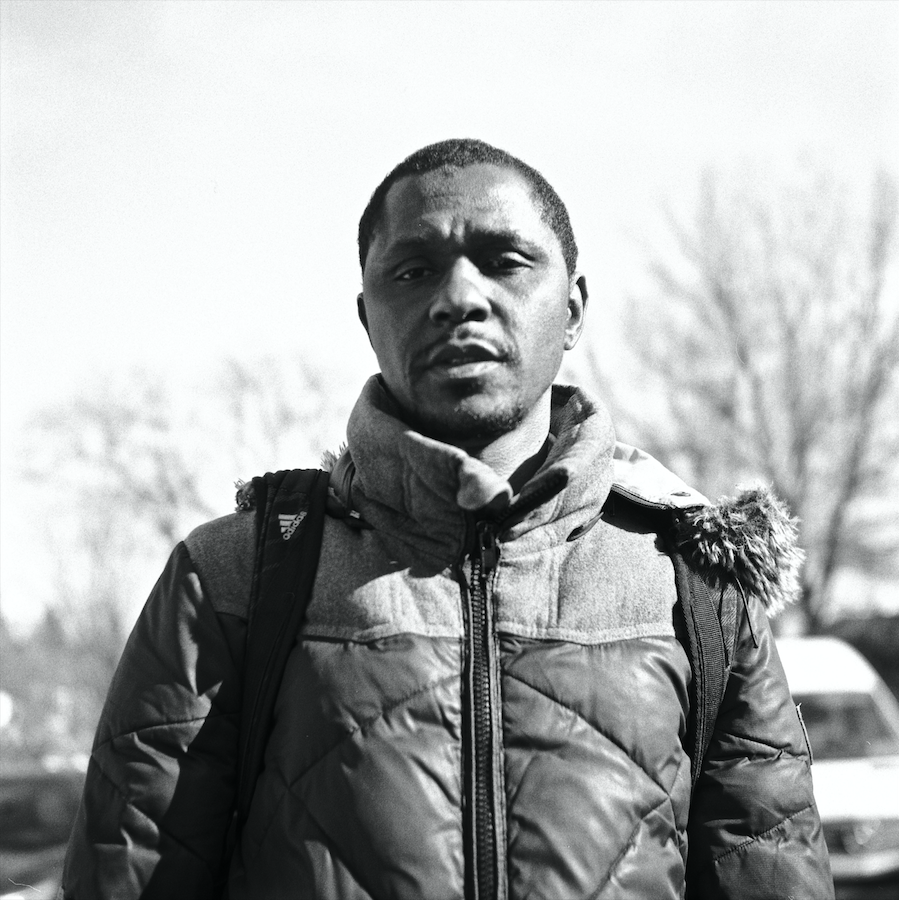Guinea is a country in turmoil, with President Alpha Condé aiming to alter the constitution in the lead up to 2020 general elections, so that he can run for a third term in office. In response, social activists, student groups and opposition parties have been mobilizing, and a political coalition called the National Front in Defense of the Constitution (FNDC) was launched in Guinea and around the world.
On October 14th, large demonstrations took place in Conakry, the capital and largest city of Guinea. Police forces deployed tear gas, as well as live ammunition to suppress the demonstrators. At least nine people were killed, with dozens injured and many arrested. Human rights organizations in Guinea, and around the world, are sounding the alarm.
That same day, a community rally was held in Ottawa, the Canadian capital, as part of an international day of protest against the policies of President Condé. There, members of the diaspora spoke out.
“It is because of these types of repressive policies by the current government in Guinea, policies of killing, of deadly violence, that the youth are fleeing, leaving our homeland, taking major risks to cross the Atlantic, to cross the Mediterranean on boats, where so many of our youth have died in the water and waves,” said Boubacar Barry, a Guinean community activist.
The October 14 attacks on protesters drew international condemnation. “The Guinean government’s brutal suppression of protests and the near-total impunity for security forces abuses is a recipe for a worrying deterioration in human rights,” said Corinne Dufka, West Africa director at Human Rights Watch, in a statement. “Instead of arresting civil society leaders, the government should be investigating the worrying allegations of violence, including by the security forces, and sanctioning those responsible.”

Against incredible odds, Mohamed Barry (no relation to Boubacar Barry), a Guinean community activist and refugee living in Montréal, has help bring the struggle of Guineans to the public space in Canada. Barry and others are working to highlight the struggle facing Guinean asylum seekers in Canada who are facing deportation.
Mobilizing attention and political understanding has been difficult, given the general lack of awareness and interest toward Guinea in the mainstream media and within the political class. Barry has persisted, even against this radio silence.
A grassroots campaign against the deportation of Guinean refugees was launched a couple years ago with a press conference, supported by the Immigrant Workers Centre in Montréal’s Côte-Des-Neiges neighborhood.
Since then, a series of protests and actions have been organized in different parts of the city. Mohamed Barry has worked hard to mobilize the Guinean community, organizing with asylum seekers directly impacted by deportations, as well as the wider Guinean and broader West African community networks.
In Canada, the Immigration and Refugee Board has consistently not recognized, or validated, the individualized violence and repression that many Guineans speak to in asylum hearings. The Canadian government continues to refuse many refugee claims from Guinea.
Today, many Guineans living and working in Montréal face deportation.
Beyond political repression, social and economic injustices have been highlighted by Guinean asylum seekers in their fight to be recognized as refugees by the Canadian government.
Mohamed Barry’s voice has been one of the strongest in this campaign. He has worked hard to articulate the Guinean struggle and that of asylum seekers facing deportation from Canada.
“In Guinea, the Canadian government is working with the government in Conakry to build up Canadian companies, especially in mining,” Mohamed Barry told CKUT community radio. “But this doesn’t mean that Guinea is safe for Guineans, for workers, for people, for protesters who don’t agree with the government in Conakry.”
“Today, the military and police are not punished when they are violent, they have impunity very often, there is no justice,” he said. “In Guinea the economic situation is very bad, people are struggling a lot, even, many families struggle to eat.”
Barry and members of the Guinean community point to the fact that Prime Minister Justin Trudeau, of the Liberal Party, has told the world that Canada recognizes the rights of refugees. In the cases of Guineans, however, this is simply not taking place. Instead, they are facing detainment in Immigration Canada’s detention centers, and then deportation.
“There’s a lot of injustice in the administrative system, I just want the Canadian government to correct their mistakes,” said Boubacar Barry. “Sometimes there is discrimination, refugees from Guinea aren’t taken seriously, but also sometimes the Immigration Canada agents, or the judges at the Immigration and Refugee Board, really just don’t know about the situation in Guinea. Now we are telling them about Guinea and the situation we are facing, why we left, they must now correct their mistake and accept Guinean asylum seekers.”
It has been moving to hear Barry and others leading the Status for Guineans/Statut pour les guinéens campaign speak about their struggle. Last spring, we gathered in the windy rain outside of the Jarry metro station in Montréal to support this campaign. “This isn’t a joke, this is our life and we need people to support us,” said Mohamed Barry at the the rally.
Let us all find a way to do that, beyond Trudeau’s hashtags. This is the real world, and real deportations are pending.
Author Bio
Stefan Christoff is a musician, community activist and radio host living in Montréal, find Stefan online @spirodon.
